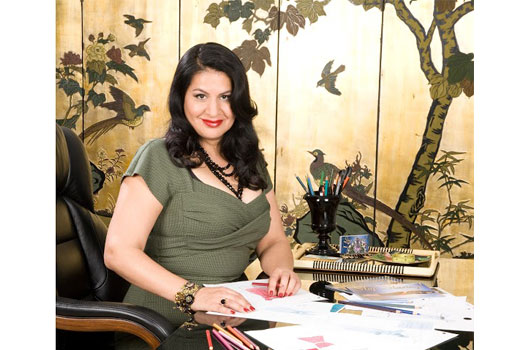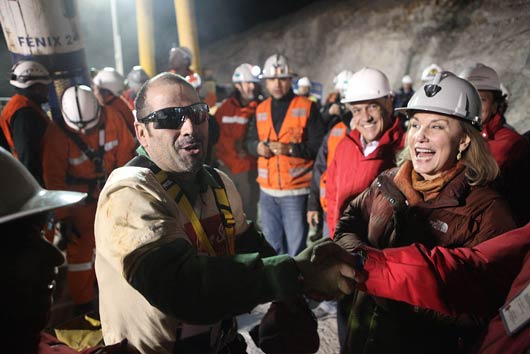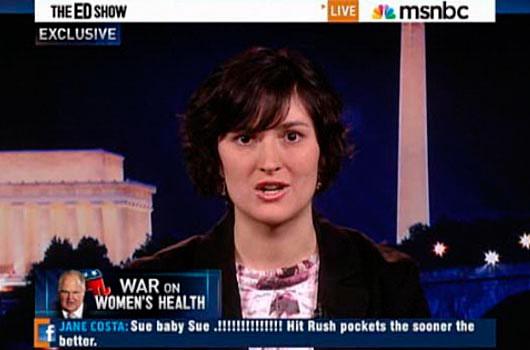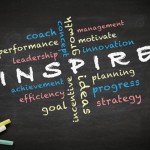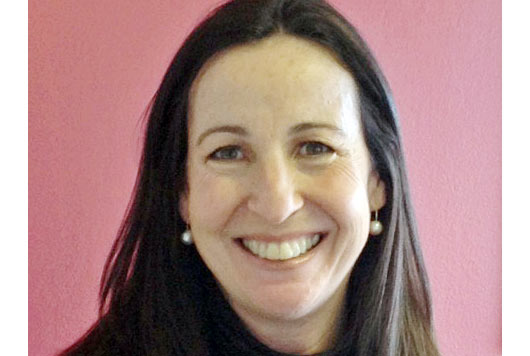
On January 31, the International Women’s Media Foundation named Elisa Lees Muñoz as Executive Director. According to the IWMF press release, “Lees Muñoz brings more than 20 years of experience with human rights and media development organizations that promote the rule of law, press freedom and the engagement, training and leadership of women in the news media around the world.” This appointment is significant for both the IWMF and Lees Muñoz. Mamiverse contributor Veronique de Miguel had the chance to speak to her about her new role.
Mamiverse: What can you tell us about your heritage?
Lees Muñoz: My parents are Spanish and most of my siblings and extended family live in Madrid. I came to the U.S. as a child, but have a strong connection to my Spanish heritage. I am fortunate to have connections with the extensive Latino community in Washington, DC. My sister was the Director of Latino Affairs under the (former Mayor Adrian) Fenty Administration and I am involved in the Latino Arts scene in DC.
Mamiverse: You have been designated as the International Women’s Media Foundation (IWMF) Executive Director by their Board. This is a huge milestone. How do you feel about it? Did you expect it?
Lees Muñoz: I have been a part of the IWMF for seven years and served as Deputy Director for two. I did not expect to be named Executive Director, because I do not take anything for granted. I was very clear about expressing my desire and interest to continue in the role after I served as Acting Executive Director. I was honored that the Board appointed me after my eight-month tenure as Acting [Executive Director].
Read Related: Mamiverse Profiles CNN’s Mercedes Soler
Mamiverse: You have over 20 years of experience with human rights and media development organizations. What are you aiming to accomplish in your new position?
Lees Muñoz: My goal is to take the IWMF to the next level. Having been here for so long, I recognize the enormous potential we hold. I hope to harness that potential and expand our operations in the area of women digital media entrepreneurs as well as the outstanding work that we do on behalf of women journalists working under extremely dangerous conditions. All the while, of course, promoting the advancement of women in the news media at all levels.
Mamiverse: What are your thoughts on the role of women journalists worldwide in the 21st Century?
Lees Muñoz: The role of women journalists worldwide should not be different than that of their male counterparts. Unfortunately, the IWMF has found that it is vastly different; the degree of difference depends on what country one is discussing, but in March, 2011, The Global Study of the Role of Women in the News Media, showed similar trends throughout the globe…that is, women concentrated at the lower levels of the news media with fewer and fewer women represented as one moves up the ladder. One of the IWMF’s primary objectives is to support women in their efforts to achieve equality in the media workplace.
Mamiverse: Do women journalists still need extra support? Why? Do they have an equal voice in the press?
Lees Muñoz: As I mentioned, women are still woefully underrepresented at the higher levels of the news media. They need more information about that basic fact, they also need policies that hinder such discrimination and promote women’s participation in the workforce, including non-discrimination policies and maternity leave, to name only a few.
It does not appear that women have an equal voice in the press. An equal voice would include participation at the highest decision-making levels of the news media. We know that women are not there. We also know that women are not equally represented in Op-Ed pages, as sources, or even as the topics of reporting unless they are being portrayed as victims. In order for women to have an equal voice in the press, all of these factors would need to be addressed.
Mamiverse: What do you think is the weakest aspect of women in journalism? And where is the strength?
Lees Muñoz: I think the biggest weakness women journalists face today is the lack of opportunity. I’m speaking globally here. They lack access to the plum assignments, to promotions, to equal pay.
Women’s strength in reporting has been demonstrated again and again in the IWMF’s Courage in Journalism Awards. They are every bit as courageous as their male counterparts. They often confront unique threats to their families, their honor (which can mean a death sentence in some countries), and their physical safety.
Many of the women who have won the IWMF’s Courage in Journalism Award talk about the access they have to women they interview in parts of the world where men would not have the same access.
Mamiverse: What are your views on Latino journalism? Are we improving?
Lees Muñoz: I think it is interesting to note that in the past few years ethnic media has been growing rather than shrinking. This would not be the case if the product were not strong. I also believe that Latino media is receiving more attention in mainstream media. Certainly Univision is a more recognizable brand today among non-Latinos than it used to be.
Mamiverse: How do you see bilingual culture in the U.S.?
Lees Muñoz: I think language is a strong part of one’s identity. I treasure my ability to speak Spanish in the United States. It creates an instant affinity with fellow Spanish-speakers, a sense of understanding a little bit more about that person. I am about to have a baby and one of my priorities is to make sure that she speaks Spanish, because I believe that it will help her to better understand who she is and where she comes from.
ABOUT THE IWMF
The International Women’s Media Foundation is a Washington-based organization founded in 1990 by a group of prominent female U.S. journalists dedicated to strengthening the role of women journalists worldwide.
The IWMF empowers women with the tools they need to serve as a prominent voice on global issues. At the core of its mission is the belief that no press is truly free unless women have an equal voice.
For more information about the IWMF, visit iwmf.org.


